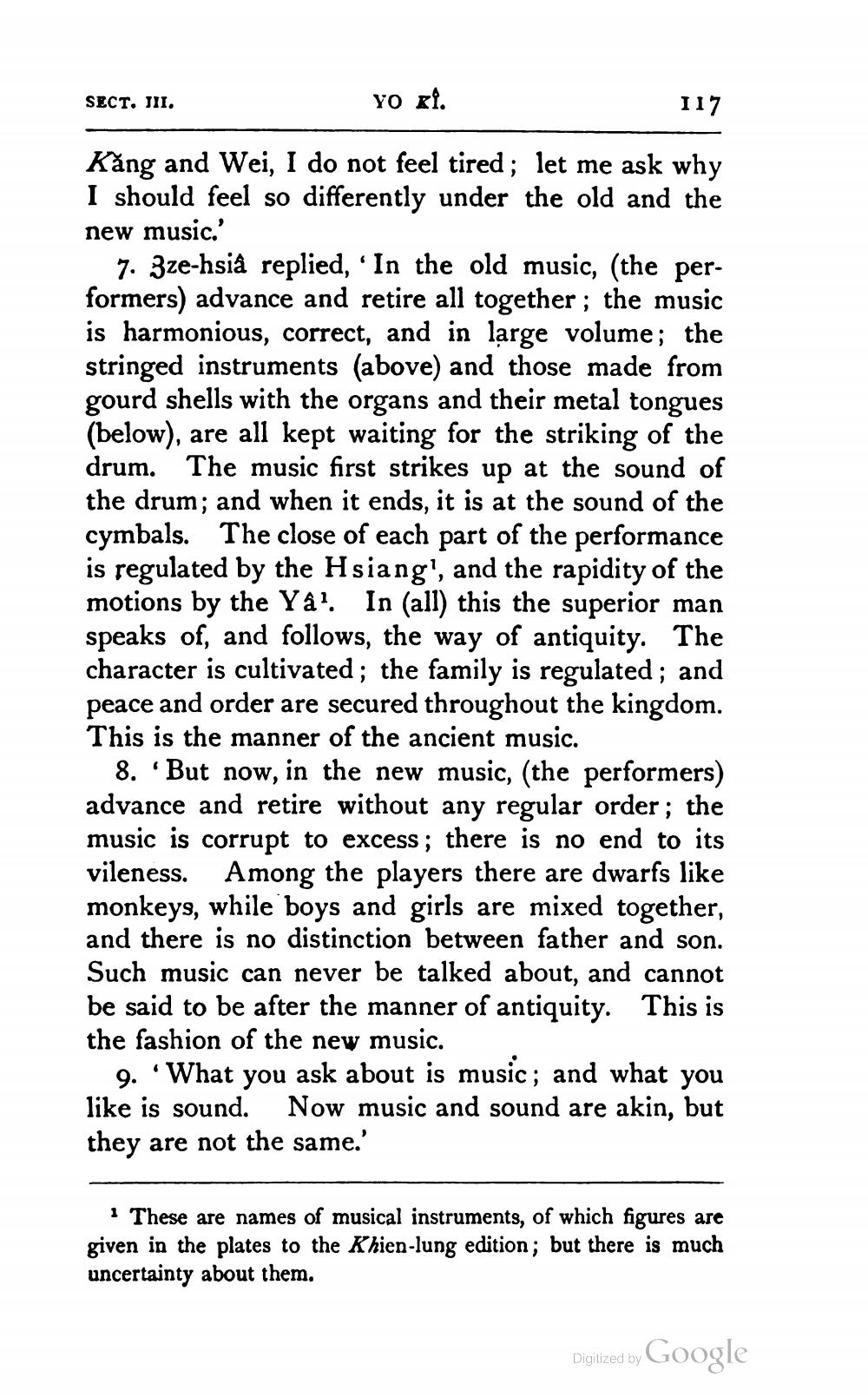________________
SECT. JII.
yo ki.
117
Kăng and Wei, I do not feel tired ; let me ask why I should feel so differently under the old and the new music.'
7. Zze-hsià replied, “In the old music, (the performers) advance and retire all together; the music is harmonious, correct, and in large volume; the stringed instruments (above) and those made from gourd shells with the organs and their metal tongues (below), are all kept waiting for the striking of the drum. The music first strikes up at the sound of the drum; and when it ends, it is at the sound of the cymbals. The close of each part of the performance is regulated by the Hsiang', and the rapidity of the motions by the Yå? In (all) this the superior man speaks of, and follows, the way of antiquity. The character is cultivated; the family is regulated ; and peace and order are secured throughout the kingdom. This is the manner of the ancient music.
8. 'But now, in the new music, (the performers) advance and retire without any regular order; the music is corrupt to excess; there is no end to its vileness. Among the players there are dwarfs like monkeys, while boys and girls are mixed together, and there is no distinction between father and son. Such music can never be talked about, and cannot be said to be after the manner of antiquity. This is the fashion of the new music.
9. What you ask about is music; and what you like is sound. Now music and sound are akin, but they are not the same.'
* These are names of musical instruments, of which figures are given in the plates to the Khien-lung edition; but there is much uncertainty about them.
Digitized by Google




